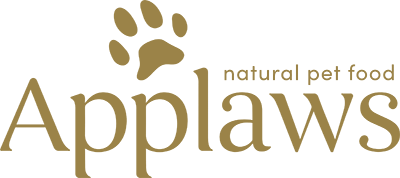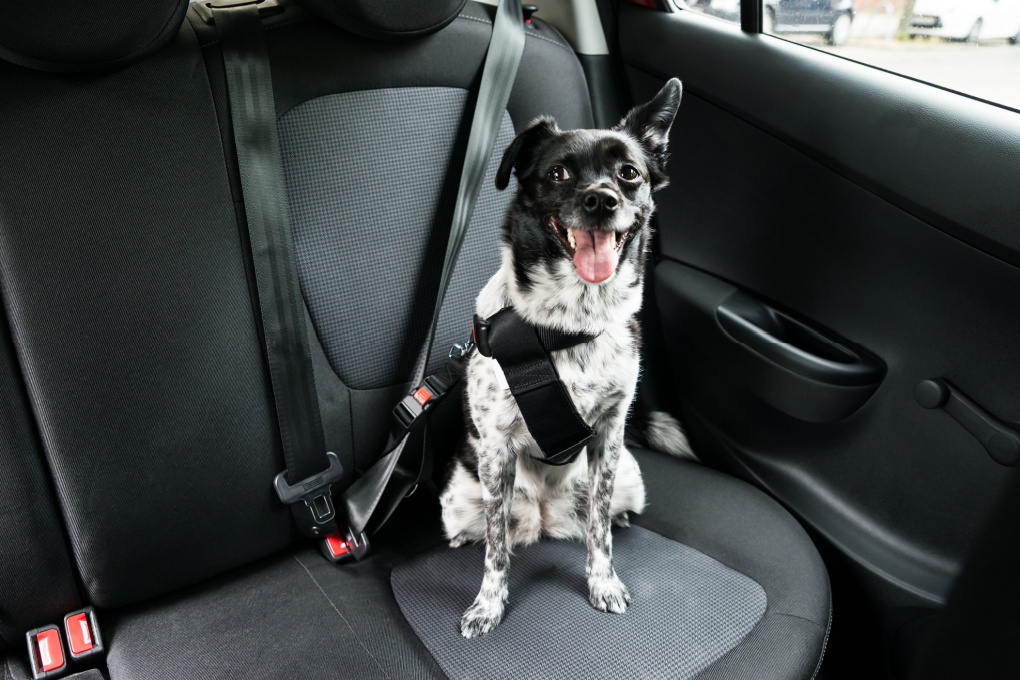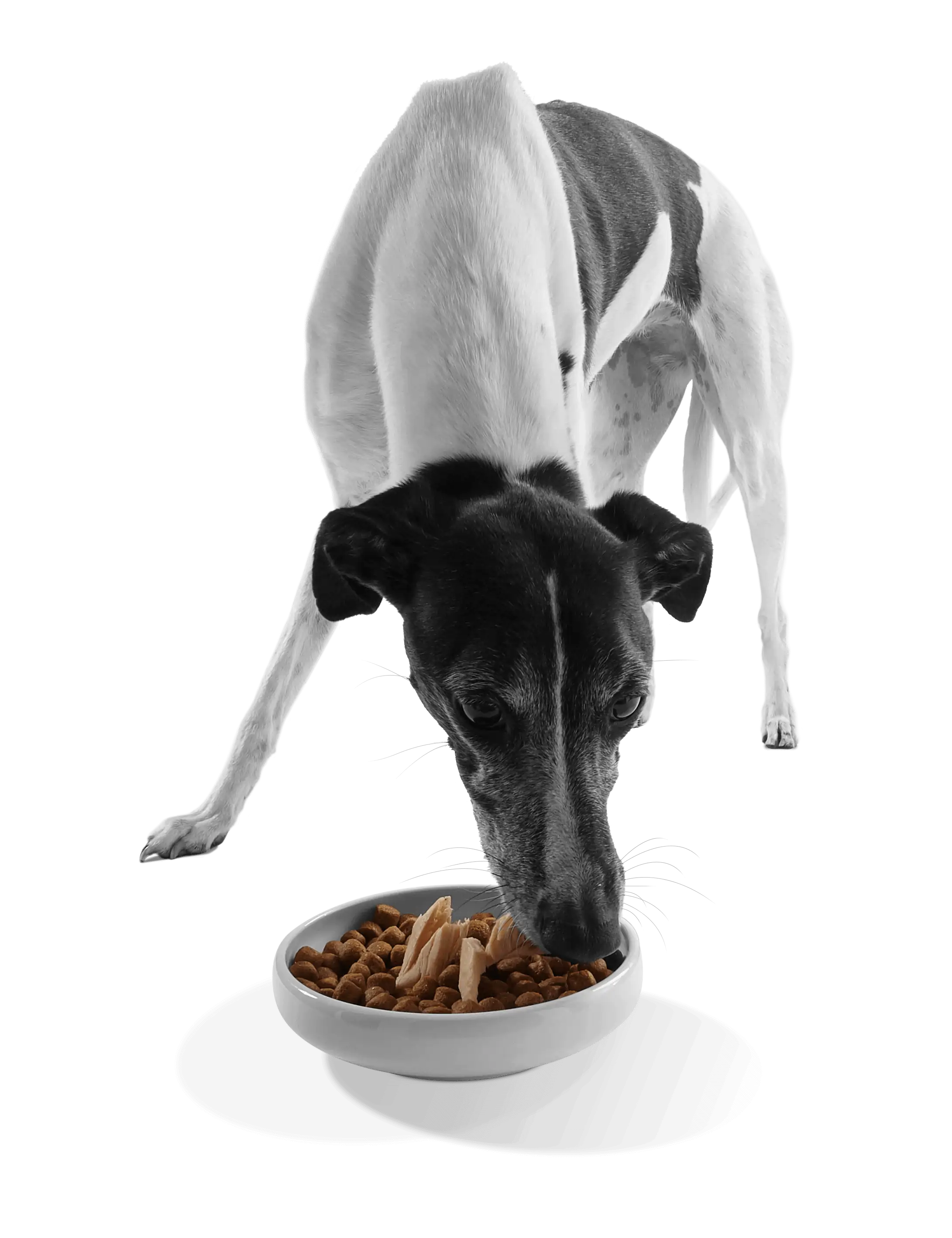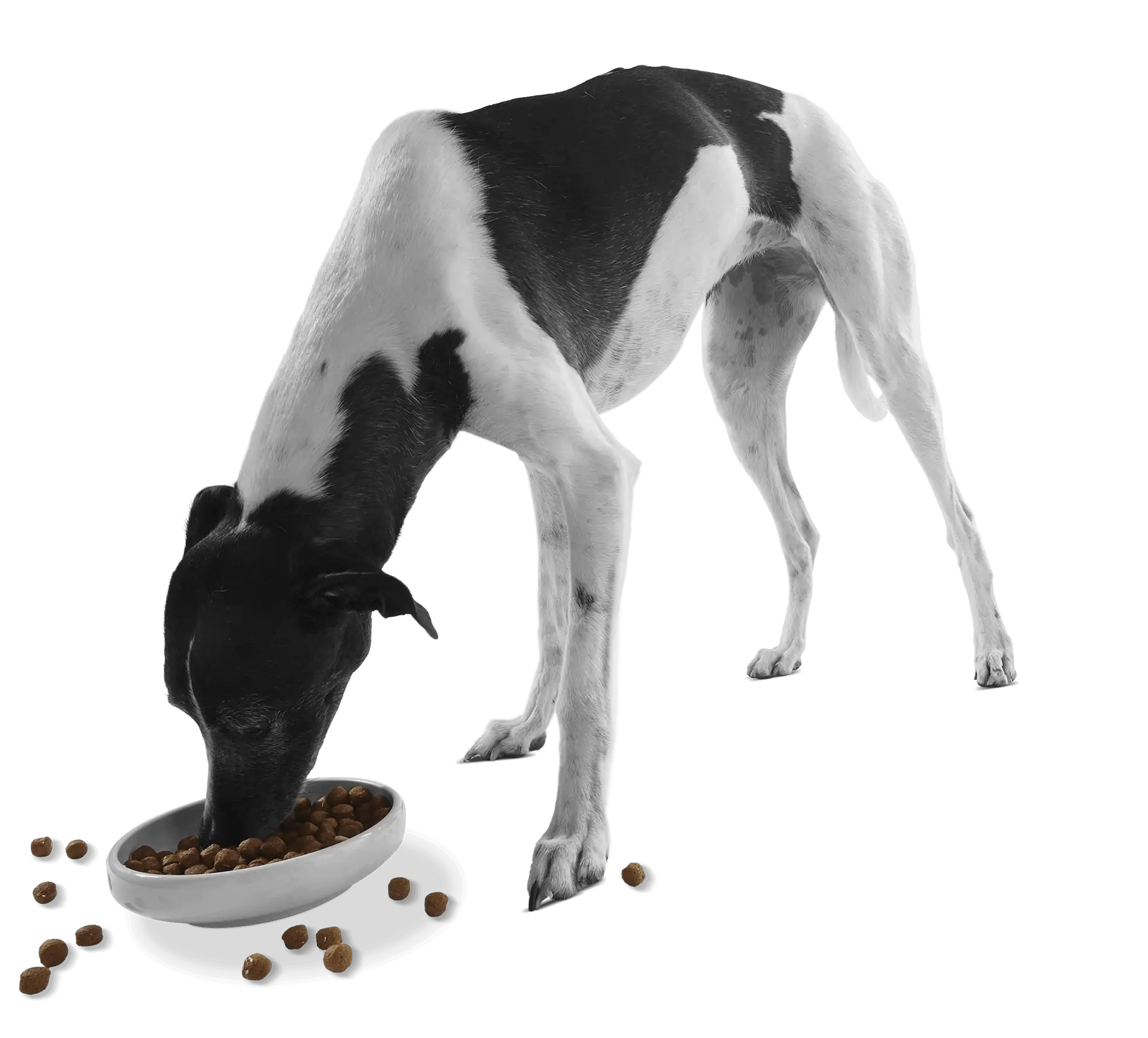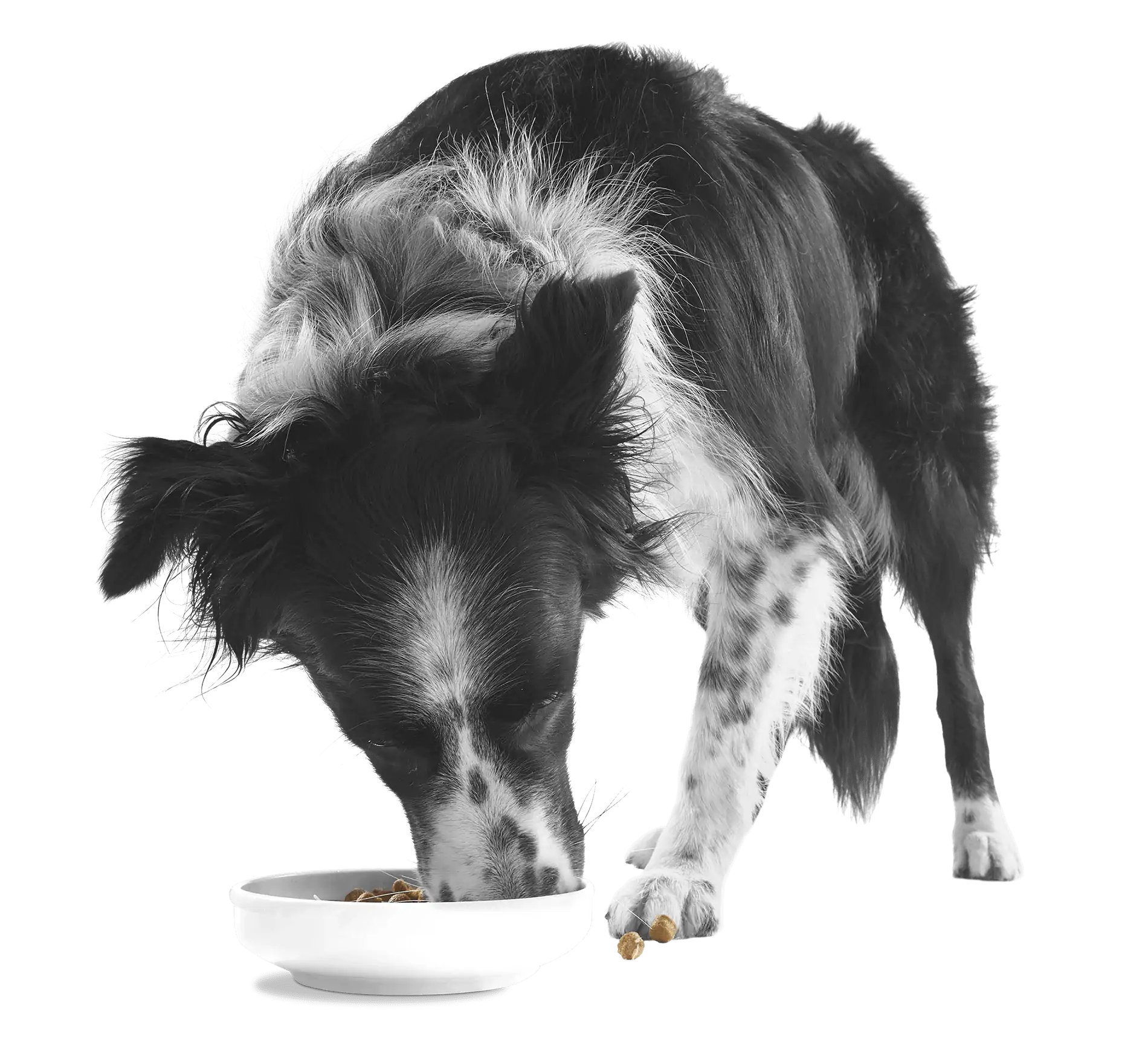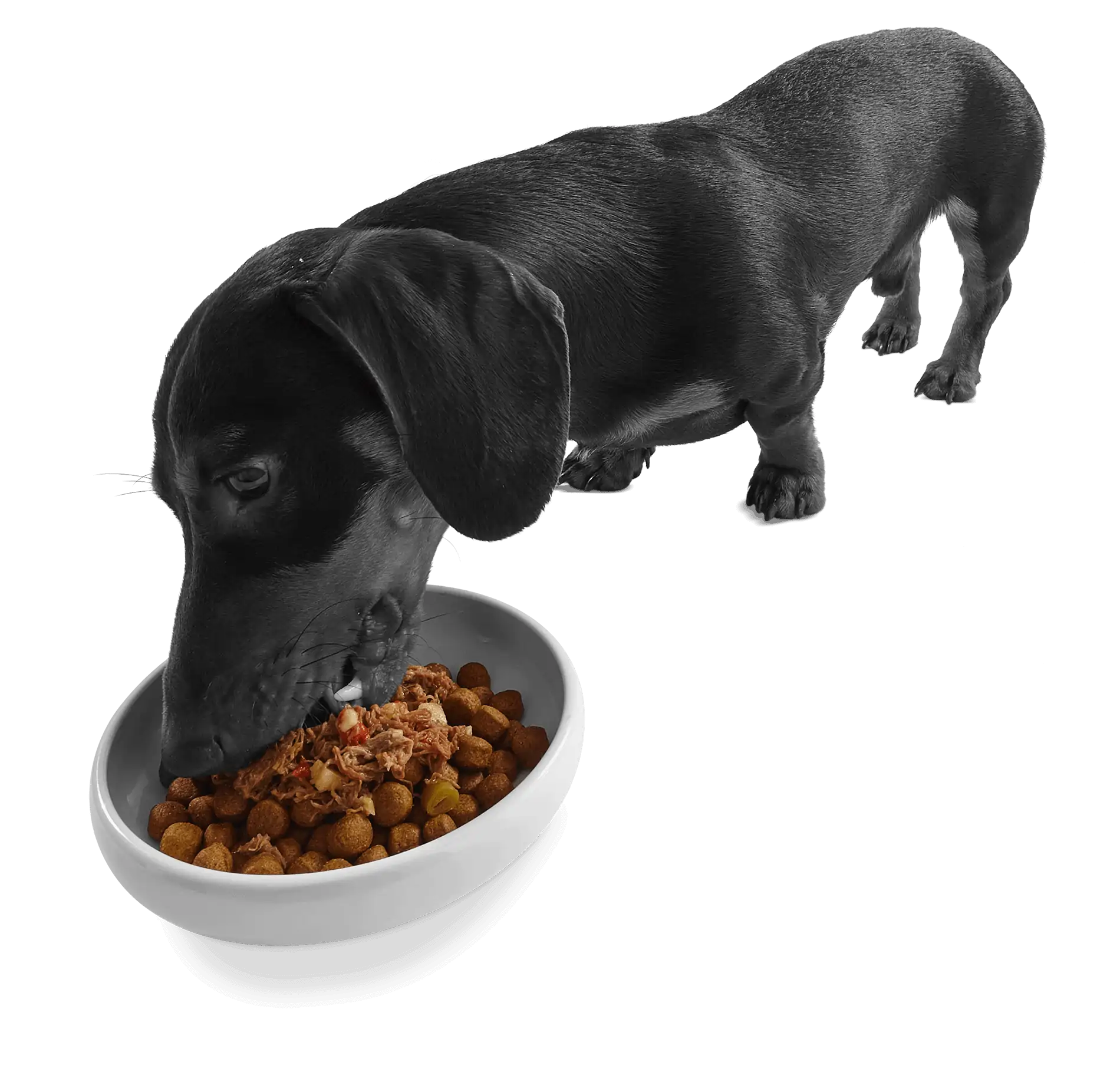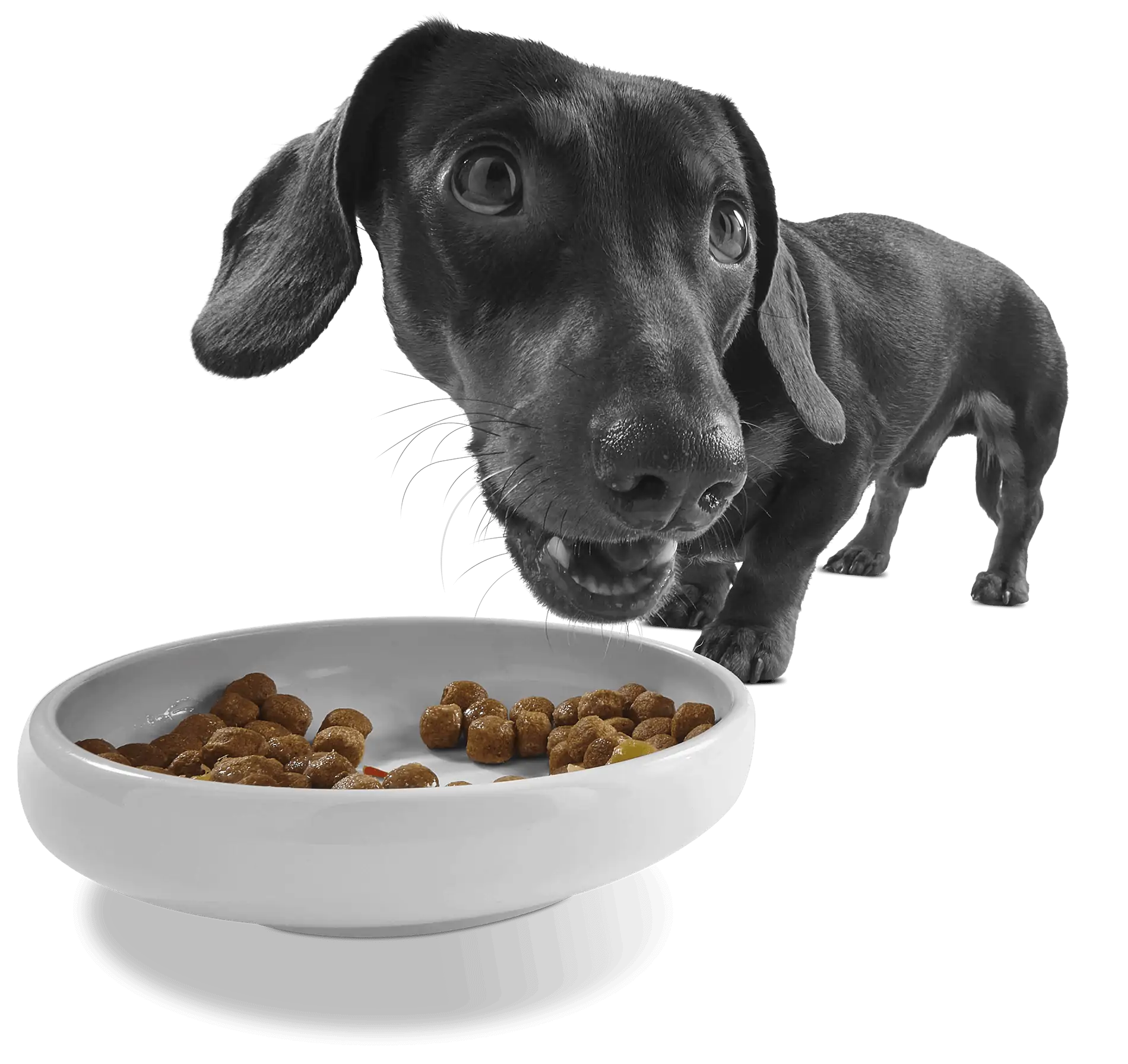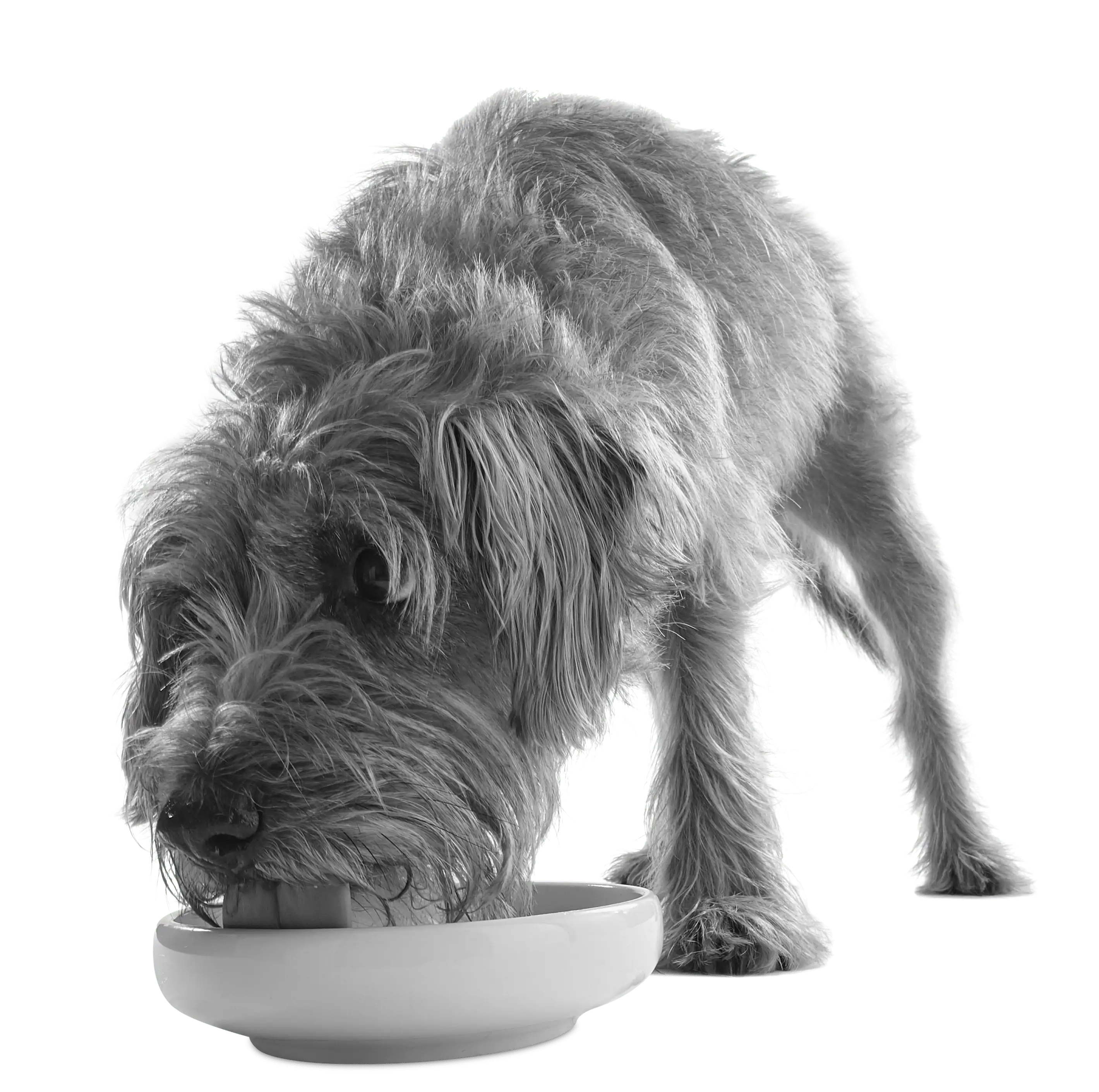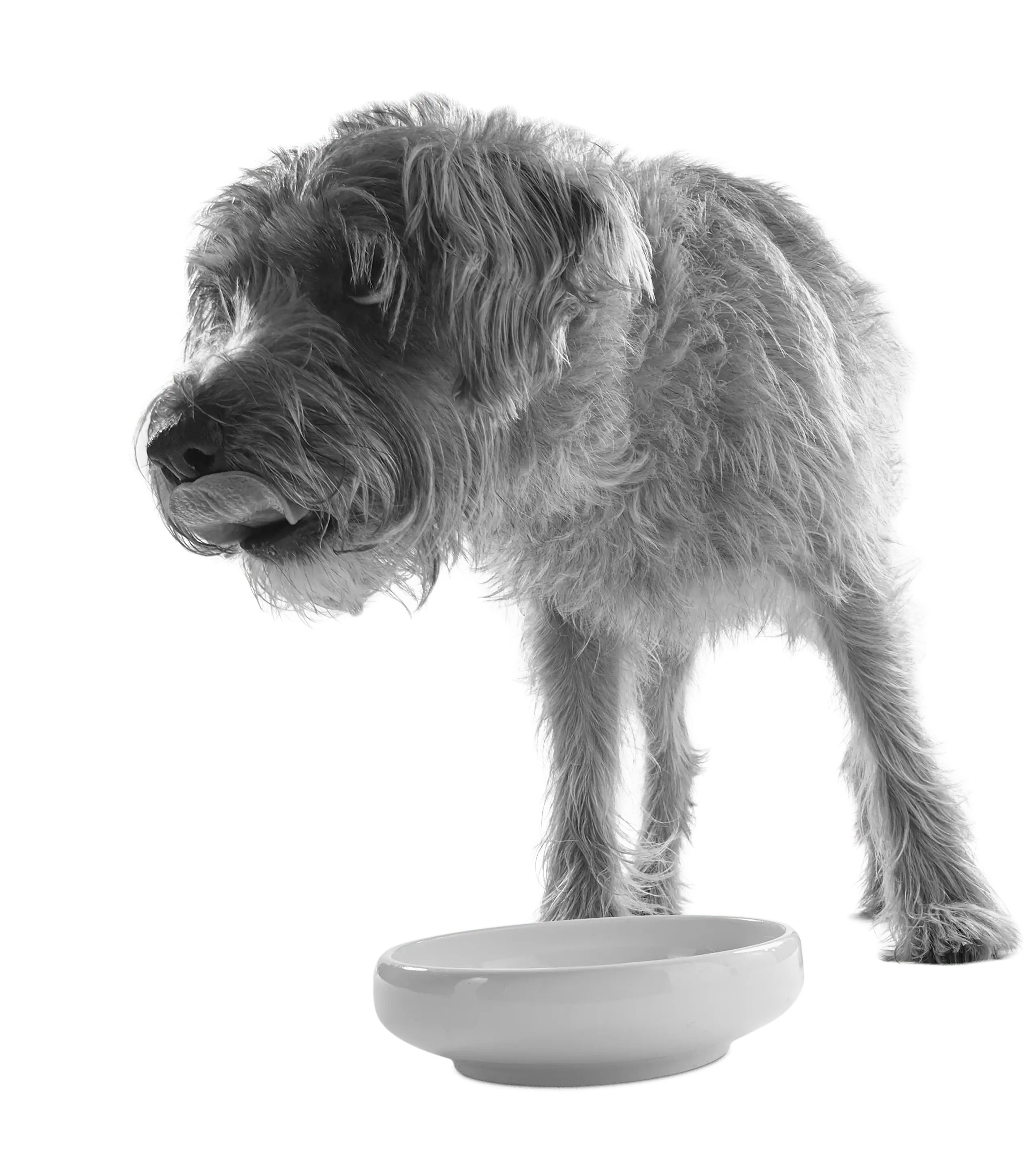It’s vitally important we get our pup’s diet just right. Their hungry little bodies are craving bowls of nutrient-loaded goodness in those first few months. Dry dog food, also known as kibble, plays a huge role in keeping their diets complete and well-balanced.
At Applaws, we recommend serving puppies complete dry food with a complementary wet food to add texture and variety to your puppies life. Our carefully designed puppy dry food contains high levels of meat to help them grow big and strong. It has also been cut into manageable bite-sized pieces so they can be broken down easily.
While kibble will actually remain an essential part of your furry friend’s diet throughout their lifetime, puppy food does not enjoy the same longevity.
When should a pet parent move their puppy to adult dog food?
There is no universal answer to this.
A general rule of thumb is that puppy food should be fed up until 12 months. However, this can vary depending on the size or breed of your dog. Most dogs will stop growing between the age of one and two, so you should not be feeding them puppy food past this point.
Your dog will give you signs when they’re ready to transition to adult food; they may skip meals or leave food they would have normally eaten. Another rule of thumb is when they have reached 80% of their expected adult size.
If you remain unsure, consult your vet who will help you find the ideal time to transition to adult food.
Should I switch immediately or introduce a gradual diet change?
Any time we make a change to our four-legged friend’s diet, it’s important we do so gradually so they have time to adjust.
While humans can go from burger to pasta to salad without even the slightest hiccup – well, serious hiccup at least – it’s different for our furry chums.
Their tummies are far more sensitive than ours, and so we need to take care when adding or removing foods.
Move too quickly when introducing a new menu and you run the risk of upsetting their digestive system, possibly leading to indigestion, vomiting or diarrhoea.
And it’s the same when transitioning from puppy food to adult dog food.
Puppies grow fast, real fast. Therefore they require special food that contains more protein and calories than adult food.
As they mature, their nutritional requirements change and that diet is left behind.
The best way to move them over to a more adult diet is to slowly begin mixing in the new food with their puppy pieces over the course of a few days.
As you increase the amount of adult food, slowly remove the puppy pieces until eventually there’s only a bowl full of grown-up goodness.
By the end of the week, your four-legged friend will have left their puppy diet behind them and will be a fully-fledged adult foodie.
The number one rule of dog nutrition is…complete and well-balanced diets.
Feeding our pets foods that are brimming with nutrients, vitamins and minerals is crucial at every stage of the their life.
However, nutritional needs do change with age meaning we have to make sure we’re choosing the right diet at the right time.
We tend to split a dog’s lifetime into three stages – puppy, adult, senior.
Puppies need calories, lots of calories. Their bodies are growing at a rapid rate in these first weeks and months, so high-quality, nourishing ingredients are needed to fuel development.
As puppies become adult dogs, generally between the age of one and two, their need for calories reduces. It’s all about nutrition for maintenance at this stage.
Senior dogs, on the other hand, may benefit from an increase in protein, with a focus on fibre-rich foods that aid digestion, and include essential fatty acids and antioxidants for ageing joints.
It’s important to remember that there’s never really a one size fits all when we’re talking about diets. Breed size and activity levels play a big role, so it’s important to keep an eye on how your dog responds to certain foods.
Extra nutrients, at any life stage, are always good. A great way to give mealtimes a nutritious, flavour-filled kick is through Taste Toppers.
It doesn’t matter what age your dog is, recipes like our Chicken Breast with White Beans, Pumpkin & Peas in Gravy Pouch or the Beef Stew with Carrots, Peas & Kidney Beans Tin or our Beef Bone Broth with Turmeric & Parsley Pouch will always be perfect mealtime additions.
